Regional Collaboration Centre for the Middle East, North Africa and South Asia
Overview
RCC Dubai was established in February 2019 with the signing of an MoU between UN Climate Change and the World Green Economy Organization (WGEO), with the support of the UAE Ministry of Climate Change and Environment and Dubai Electricity and Water Authority
RCC Dubai is dedicated to the objectives of the Kyoto Protocol, the United Nations Framework Convention on Climate Change, and the Paris Climate Change Agreement. It helps channel local, regional and global resources into climate action, to facilitate implementation of countries’ Nationally Determined Contributions (NDCs) to the Paris Agreement, National Adaptation Plans, roadmaps for implementation of the 2030 Agenda for Sustainable Development, and other relevant policies and strategies of countries in the region.
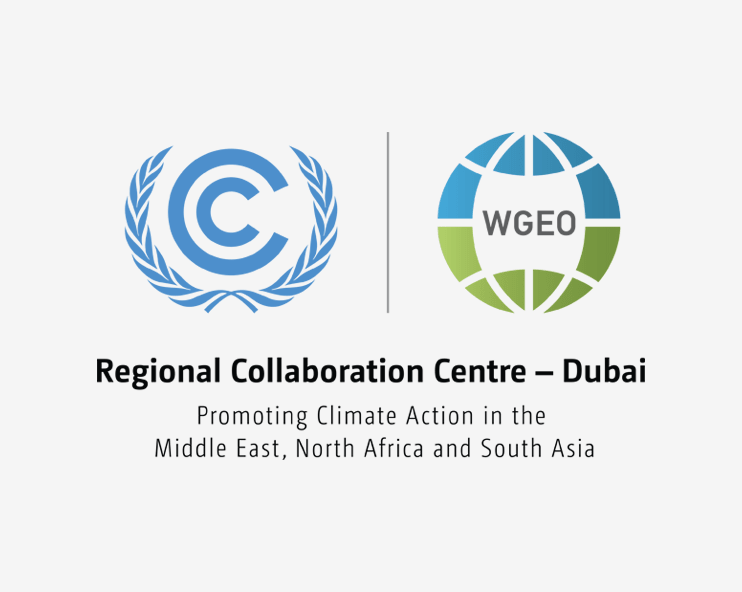
Regional Collaboration
Centres
UN Climate Change and six prominent partners are catalysing action on the ground through Regional Collaboration Centres combining climate change expertise with in‐depth local knowledge.
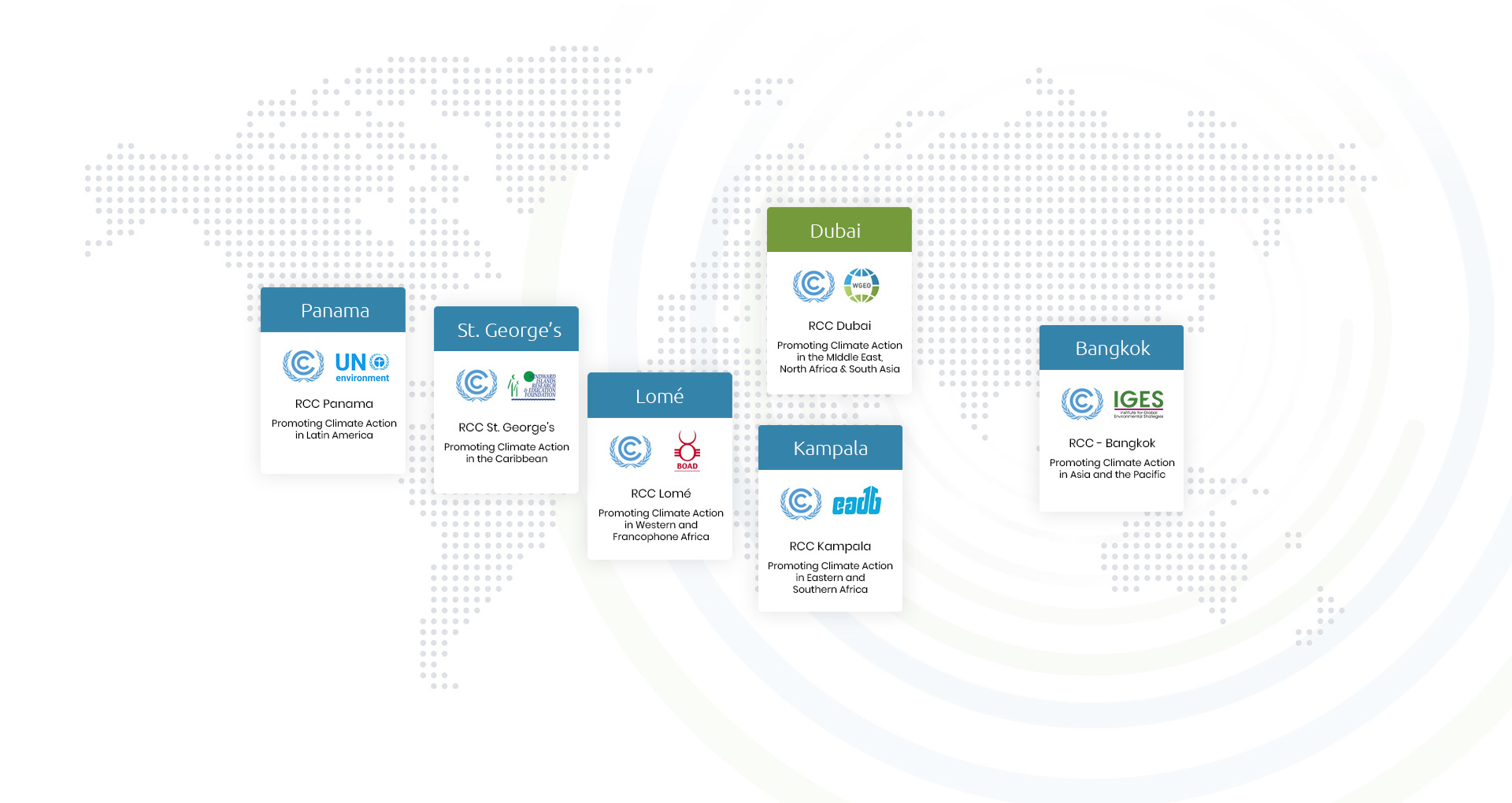
Impact in the Region
Set up to spread the benefits of the Clean Development Mechanism under the Kyoto Protocol, the RCCs have broadened their role since the adoption of the Paris Agreement to facilitate the implementation of countries’ Nationally Determined Contributions (NDCs) under that agreement. RCCs facilitate support in the following areas:
Regional Coordination
Policy Support
Technical Capacity
Partnership Building
Communication & Outreach
Data Collection
‘Plug And Play’
Logistic Hubs
RCC Dubai - Benefits to the Region
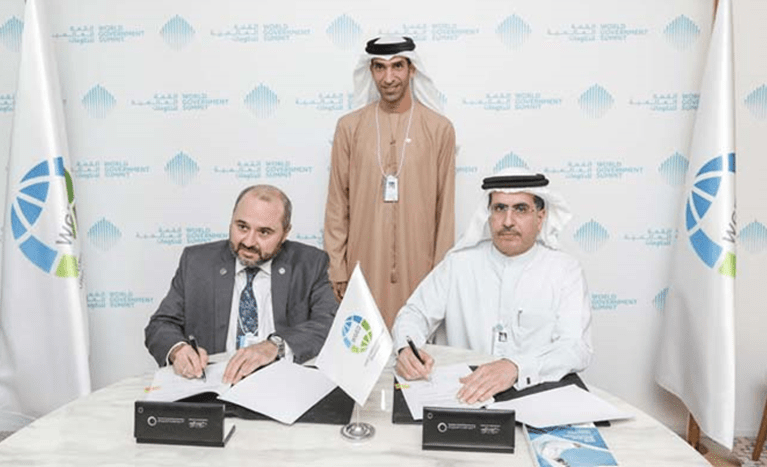
Established on the 13th of February 2019 with the signing of an MoU between the World Green Economy Organization (WGEO) and UN Climate Change secretariat, through the support of the UAE Ministry of Climate Change and Environment (UAE) and Dubai Electricity Water Authority (DEWA).
RCC Dubai
 Combines on-the-ground presence with global reach through UN Climate Change and the network of RCCs
Combines on-the-ground presence with global reach through UN Climate Change and the network of RCCs Connects regional stakeholders, including youth, with the international climate change process
Connects regional stakeholders, including youth, with the international climate change process Helps coordinate and align the regional response to climate change
Helps coordinate and align the regional response to climate change Creates and promotes partnerships, finding synergy and avoiding duplication of effort
Creates and promotes partnerships, finding synergy and avoiding duplication of effort Organizes events and engagement, improving outreach to regional stakeholders
Organizes events and engagement, improving outreach to regional stakeholders Identifies gaps and barriers to effective implementation of NDCs, National Adaptation Plans and other national climate strategies and policies
Identifies gaps and barriers to effective implementation of NDCs, National Adaptation Plans and other national climate strategies and policies Provides technical support and creates technical capacity to ensure sustainability.
Provides technical support and creates technical capacity to ensure sustainability.
RCC Dubai - Project Portfolio
RCC Dubai’s project portfolio consists of a range of projects designed to: fill knowledge gaps in adaptation to climate change, create strategies to access climate finance, increase regional participation in global climate action, strengthen the capacity of youth to contribute to the regional and global response to climate change, establish new methodologies and tools to address climate change.
Regional Coordination and
Outreach Network
WGEO will be enhancing engagement in the regions by using the various Regional Collaboration Centres (RCCs) as platforms to support facilitation of regional coordination and outreach by deploying experts at each RCC.
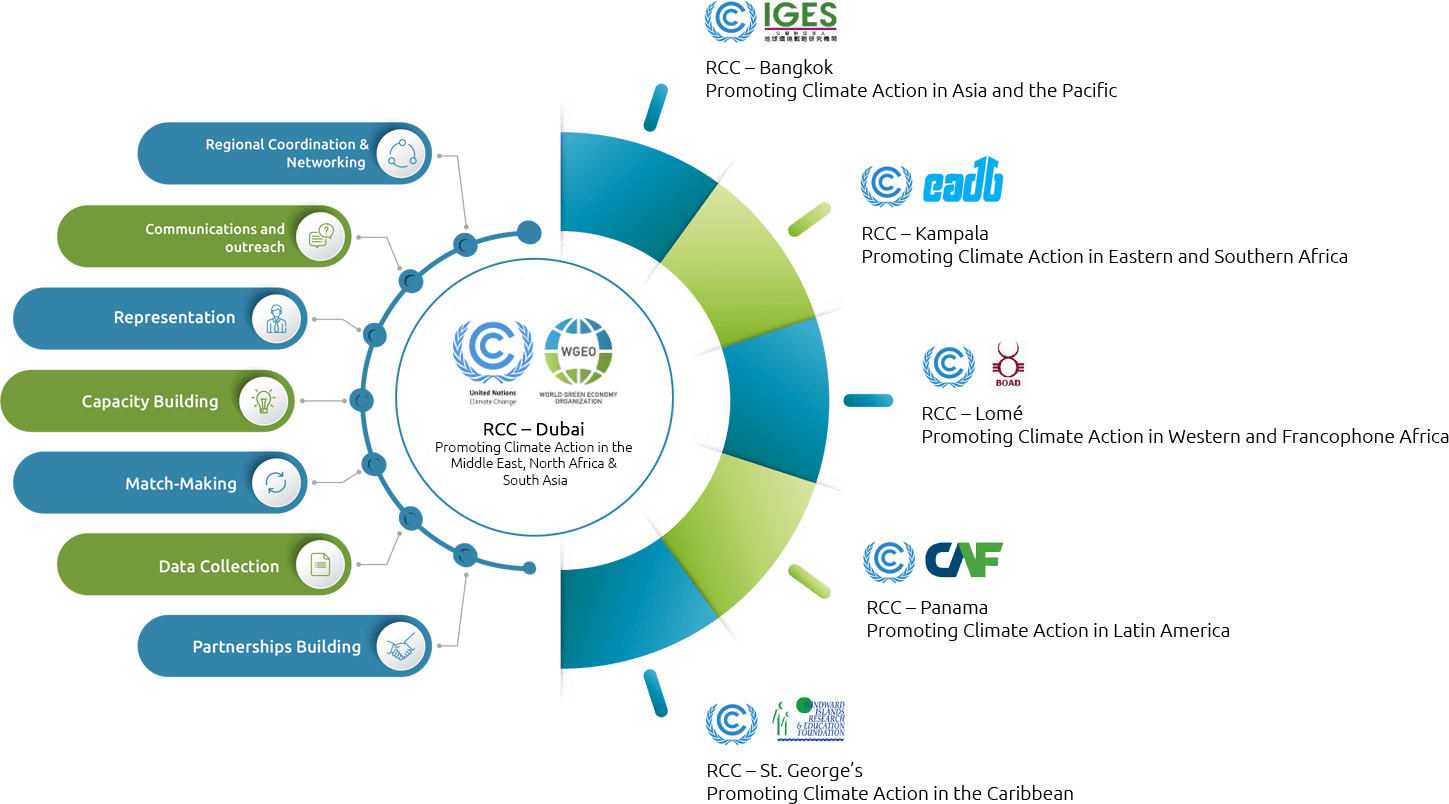
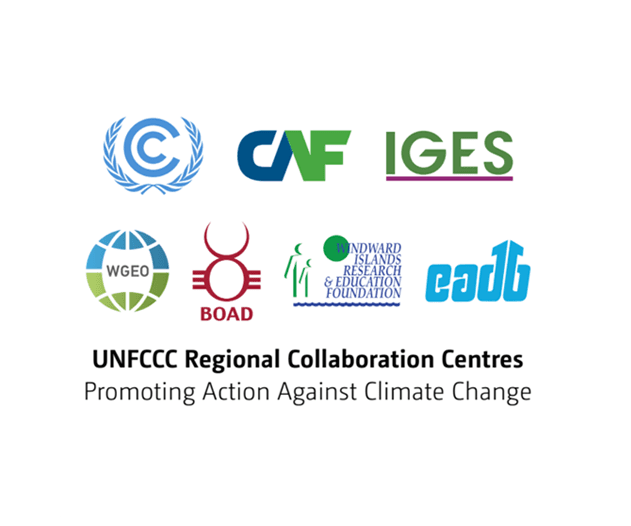
About the RCCS
UN Climate Change and six prominent partners are catalysing action on the ground through regional collaboration centres combining climate change expertise with in‐depth local knowledge, in Bangkok, Dubai, Kampala, Lomé, Grenada and Panama.
Set up to spread the benefits of the Clean Development Mechanism under the Kyoto Protocol, the RCCs have broadened their role since the adoption of the Paris Agreement to facilitate the implementation of countries’ Nationally Determined Contributions under that agreement.
The RCCs facilitate national climate action through capacity-building, technical assistance and strategic networking—mobilizing know-how and resources to drive clean development.
In this context, the RCCs help the secretariat and its partners to deliver annual Regional Climate Weeks in Asia-Pacific, Africa, Latin-America and the Caribbean, and MENA regions. The Climate Weeks are fast emerging as one of the most important platforms for bringing together regional stakeholders and support climate action at the regional level.
For more about the RCCs, please click
https://unfccc.int/about-us/regional-collaboration-centres